IOS and AIMC jointly organises Condolence Meet to mourn the death of Maulana Shah Qadri Syed Mustafa Rifai Jilani Nadwi
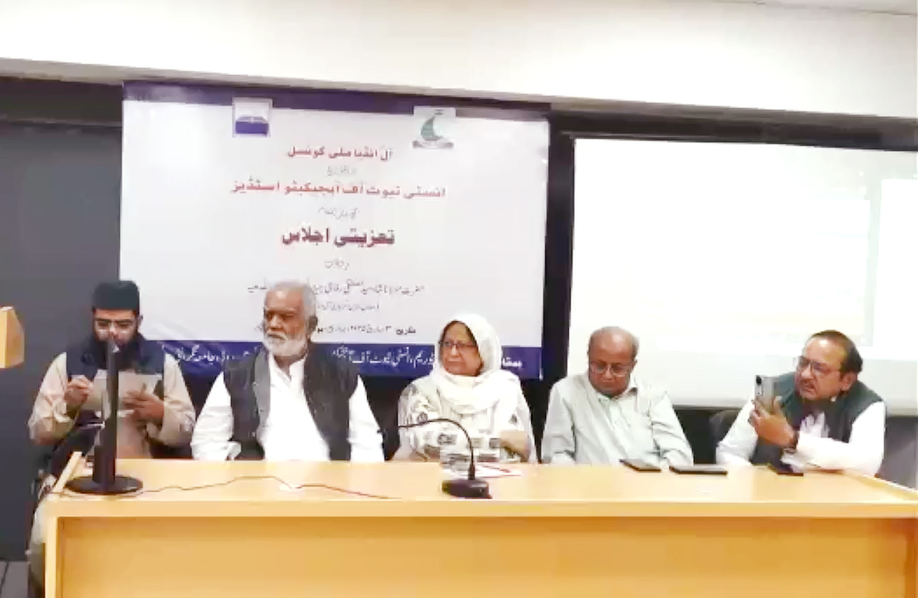
IOS and AIMC jointly organises Condolence Meet to mourn the death of Maulana Shah Qadri Syed Mustafa Rifai Jilani Nadwi
New Delhi: A condolence meeting to mourn the passing away of member, general assembly, Institute of Objective Studies (IOS) and one of the assistant general secretaries of the All India Milli Council (AIMC), Maulana Shah Qadri Syed Mustafa Rifai Jilani Nadwi, was jointly organised by the IOS and AIMC at the IOS auditorium on March 3, 2025.
The condolence meet began with the recitation of a Qur’anic verse by Mr. Naseem Ahsan with its translation into Urdu.
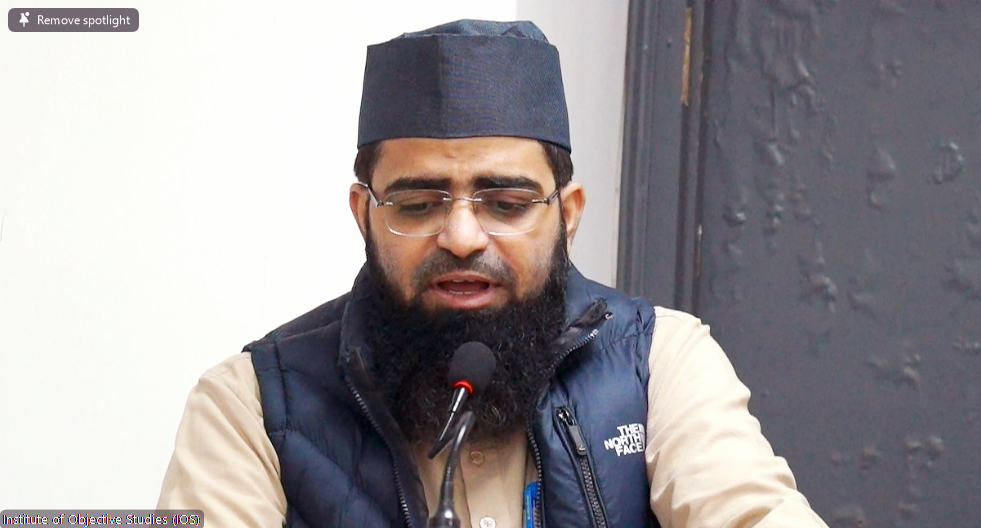
In-charge of the Urdu section of the Institute, Maulana Shah Ajmal Farooq Nadwi, who conducted the proceedings, described Maulana Rifai as a spiritual and Milli personality. He was acclaimed as a spiritual leader in the Indian sub-continent. He belonged to the lineage of the great Sufi Saint, Sheikh Abdul Qadir Jilani. He was closely associated with both the IOS and AIMC. As assistant general secretary of the AIMC, he extensively travelled from Kashmir to Kerala to acquaint himself with the problems faced by the Muslim community. He had been very close to the chief patron and founding chairman of the Institute, Dr. M. Manzoor Alam. He was given the IOS Shah Waliullah Award for his contribution to Sufism.
Mr. Suleman Khan, one of the assistant general secretaries of the AIMC, said that Maulana Rifai was ailing since the last three years. Prayers for the improvement of health were made by his admirers and his disciples. Months before his death, he travelled to Kashmir where severe cold gripped him and he was unable to move around. He then took the help of the WhatsApp to issue directions to the office-bearers and members of AIMC. He belonged to Rifai Sufi Order. He was the khalifa of his brother. He spent seven years in Nadwatul Ulema, Lucknow. He studied Hadith from Maulana Zakariyya Kandhlawi. During his stay at Nadwa, he became very close to Maulana Syed Abul Hasan Ali Nadwi alias Ali Miyan. He observed that Maulana Rifai was associated with all the milli activities that took place in Bengaluru. He was always assigned with the organisational responsibilities. He underwent a surgical procedure during which he remained in the coma. But when he regained consciousness, he enquired about the progress of the milli activities. The Muslim community could never be oblivious to his services to it. He suggested that his services to religion and sufism be brought in book form. He devoted his entire life to the service of AIMC. He announced that an all-India programme on his contributions would be organised at Darussalam in Bengaluru in coming months.
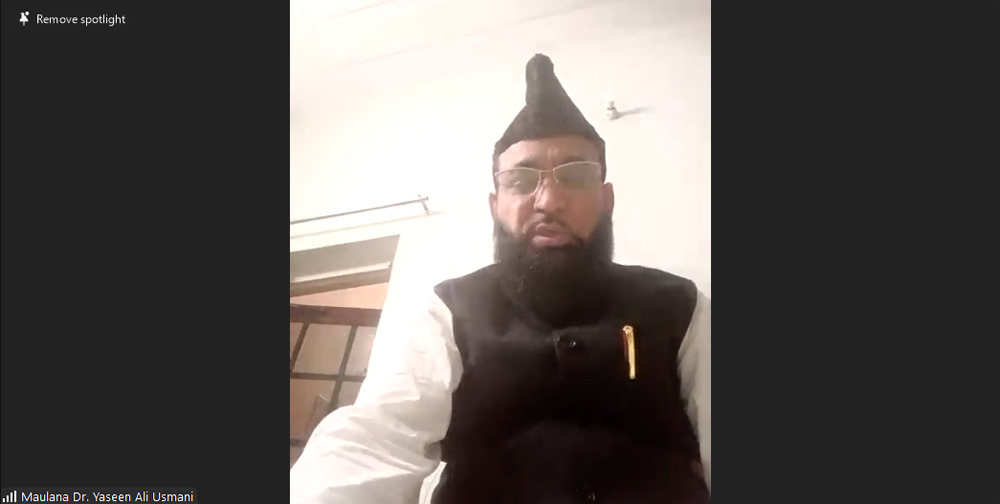
Vice-president of the AIMC, Maulana Dr. Yaseen Ali Usmani, described the passing away of the Maulana as a big loss to the Muslim community. He brought different milli organisations on one platform under the umbrella of AIMC. He, along with others, rendered yeoman’s service to Islam and the Muslim community. Like him, he also belonged to a Khanqah. About himself, he said that he hailed from Budaun, also known as ‘Madinatul Auliya’. He worked till the end. He was very affable and used to give respect to elders and give affection to youngers. Being a Khanqahi representative, he led the simple life of a sufi. He said that mosque, madrasa and community kitchen were the main features of the Khanqahi life. That was the reason that lakhs of people benefited from Khanqahs. The maulana used to say that AIMC was such a platform where all schools of thought converged. This could be determined from the fact that there was consensus among all the stakeholders on 98 percent issues relating to the community. “But unfortunately, we fail to arrive at a decision on 90 percent matters. We should take inspiration from his services to the community”, he stressed.
On this occasion, the message of the chief patron, and founding chairman of the IOS, Dr. Mohammad Manzoor Alam, who could not attend the meet on account of his ill-health, was read out by Maulana Shah Ajmal Farooq. In his message, Dr. Alam recalled the services of Maulana Rifai to the millat by his hard work and dedication. He devoted his entire life to the cause of the community and proved his worth as a successful organiser. His services would always be remembered by the Muslim community.
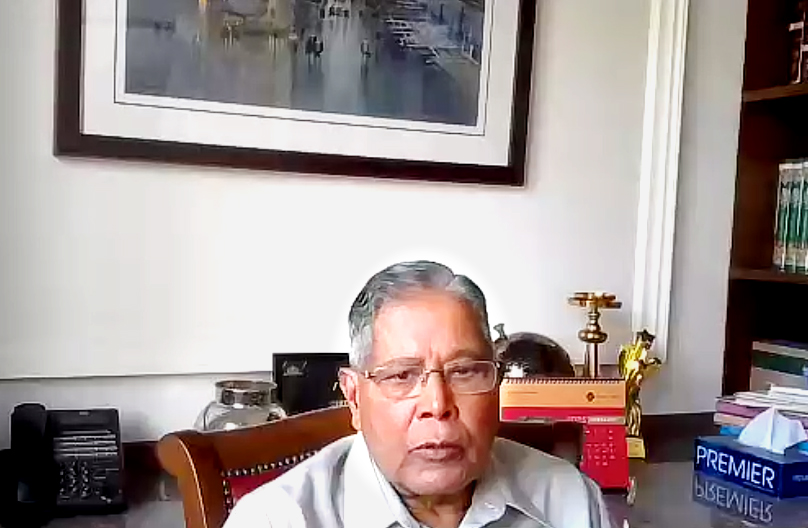
Former Union Minister for Minority Affairs, Mr. K. Rahman Khan, noted that Maulana Rifai lived the life of an alim and engaged himself in the activities for the uplift of Muslims. His co-ordination with other functionaries of the AIMC was very good. He believed in taking everybody along. He led a very pious life and whatever he did, it was all for the sake of Allah. He was very suave and used to meet everyone with warmth. He asked the office-bearers of the Milli council to work for the community with the same sense of belonging as the Maulana did. He undertook a tour of the whole of Karnataka and the country to ascertain the problems which the Muslim community was faced with. He called for following into his foot-steps to work for the country and the community.
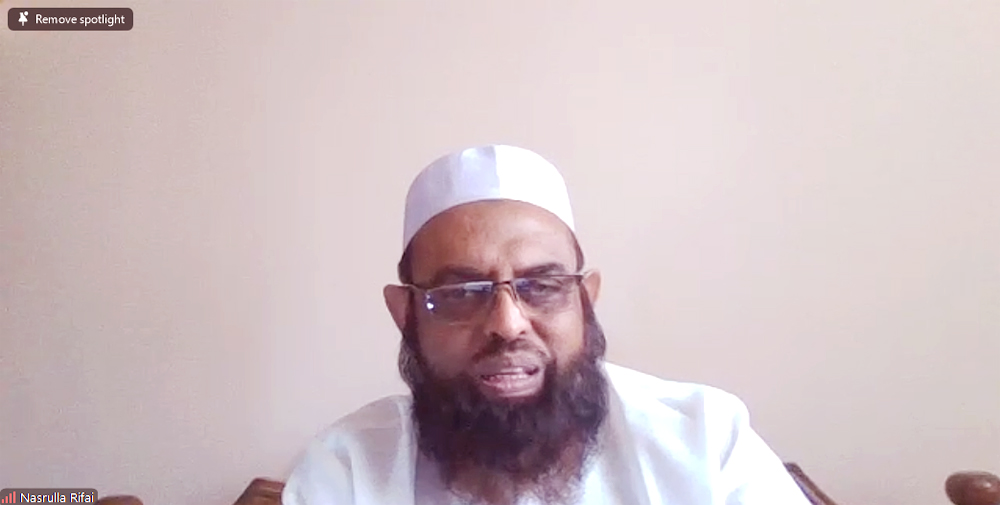
Maulana Mustafa Rifai’s son Syed Nasrullah Rifai Nadwi, said that his father’s passing away was very shocking not only for his family, but also for the entire millat. “He was not only my father but also my mentor. Besides his service in the field of Islamic knowledge his bonhomie with Sufism was discernible. He led a very simple and austere life which was for the pleasure of Allah. He gave the practical shape to Sufism. He was a Wali in true sense of the term. But he refrained from doing any miracle (karaamat), Syed Nasrullah Rifai, added.
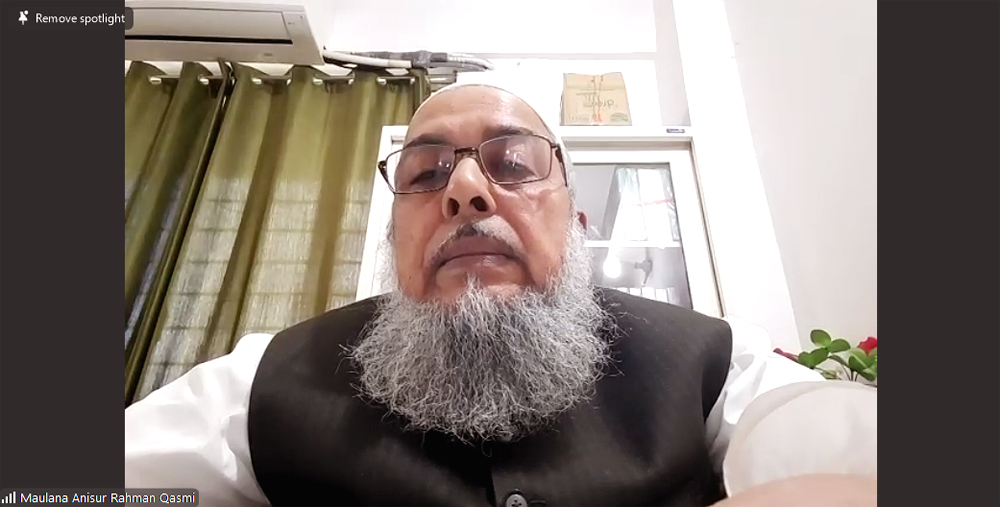
Vice-president of the AIMC, Maulana Aneesur Rahman Qasmi, held that he has experienced Maulana Rifai’s mode of working from very close quarters. Nobody could sit over judgment on a person without making assessment of his performance. Maulana Rifai was one such rare person who hid his personality from public gaze. The bag he used to carry with him contained only a set of clothes which included his kurta and a black Tahband (a long strip of fabric, often of cotton or silk fabric, worn around the waist) and necessary papers relating to the Rifai order. He always remained unattached with the worldly affairs. He handed down the rich legacy of Tasawwuf. His diet included a thin roti (chapatti) and little bit of vegetable. Maulana Qasim said that he was also granted the permission by Maulana Zakariyya Kandhlawi to initiate into his Order.
He used to go on pilgrimage to Harmain-Sharifain twice a year. While in Madina, he used to pay his visit to the mausoleum of the Prophet Mohammad (PBUH) and read out Salaam in praise of Him. Once he left for Fajr prayer, he returned only after Isha prayer. He never attached himself to this mundane world. He was an aalim with deep knowledge of Islamic thought. Allah (SWT) invested him with the purity of intention. He said that the AIMC benefited much from his services. He always attached more importance to din and reform in Muslim society. He hoped that his work would continue to inspire the community.
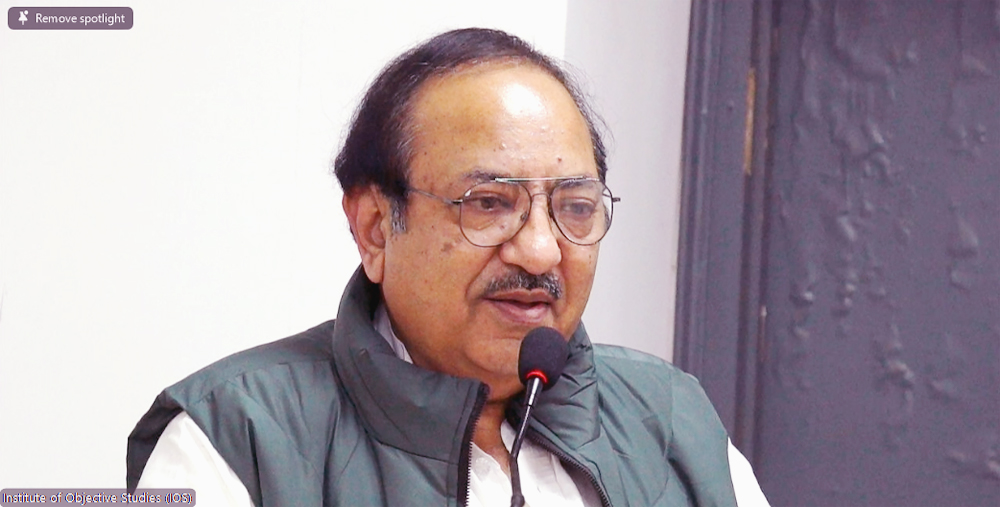
President of the Delhi unit of the AIMC, Dr. Pervez Miyan, observed that he had the opportunity to accompany him to several states and present his views on the issues of the community. He was an embodiment of simple living. His death created a big void which could never be filled. He pledged to follow the path shown by Maulana Rifai. He said that the Waqf (Amendment) Bill was a big challenge before Indian Muslims. Dr. Zahid Khan, general secretary of the West UP Milli Council, held that Maulana Rifai was a Sufi dervish whose clothes matched his simple living. He remained very active till his end.

President of the AIMC, Hakim Maulana Abdullah Mughesi, remarked that Maulana Rifai was one of the founders of All India Milli Council. He played an important role in its development. He undertook a country-wide tour to understand the issues of the Muslim community. He prayed to Allah to grant him an exalted place in Jannah and endow the AIMC with an able substitute for him. Zafar Masud from Hyderabad, recalled his meetings with Maulana Rifai in Saudi Arabia. He was garbed in very simple clothes. He quite often visited the Kingdom of Saudi Arabia. Maulana Abdul Malik Mughesi, district president of AIMC, Saharanpur, spoke from Harmain Sharifain. He said that after leaving Nadwa, he transferred all the things related to the Rifai Order to his brother.
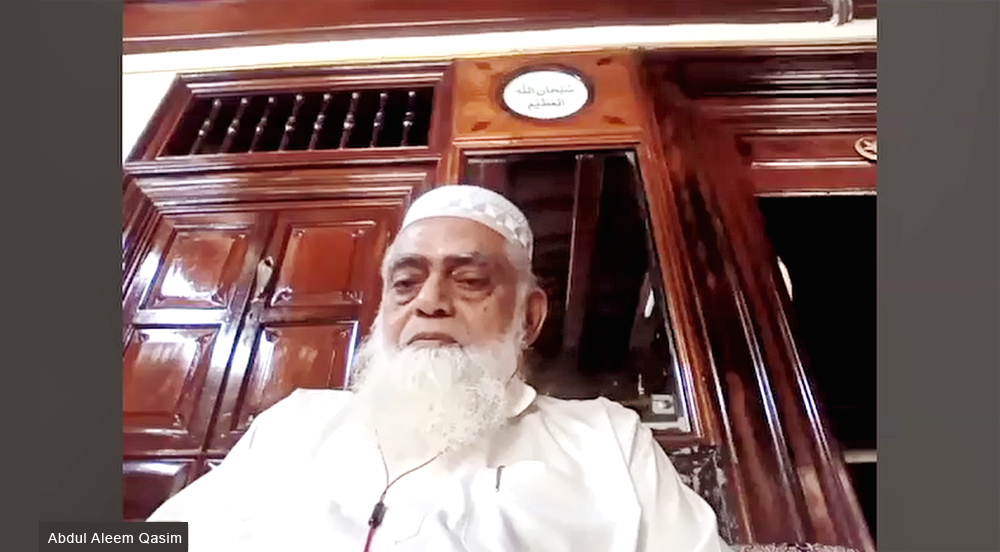
In his presidential remarks, Maulana Abdul Aleem Qasim Bhatkali, vice-president of the AIMC, that Maulana Rifai was a fine person. He knew him since his youth. He used to wrap himself in black clothes. He was always concerned about the All India Milli Council. He used to carry a small bundle of books during his travel. Referring to Tasawwuf, he said that it was a means to purify heart. He called for the study and dissemination of his works.
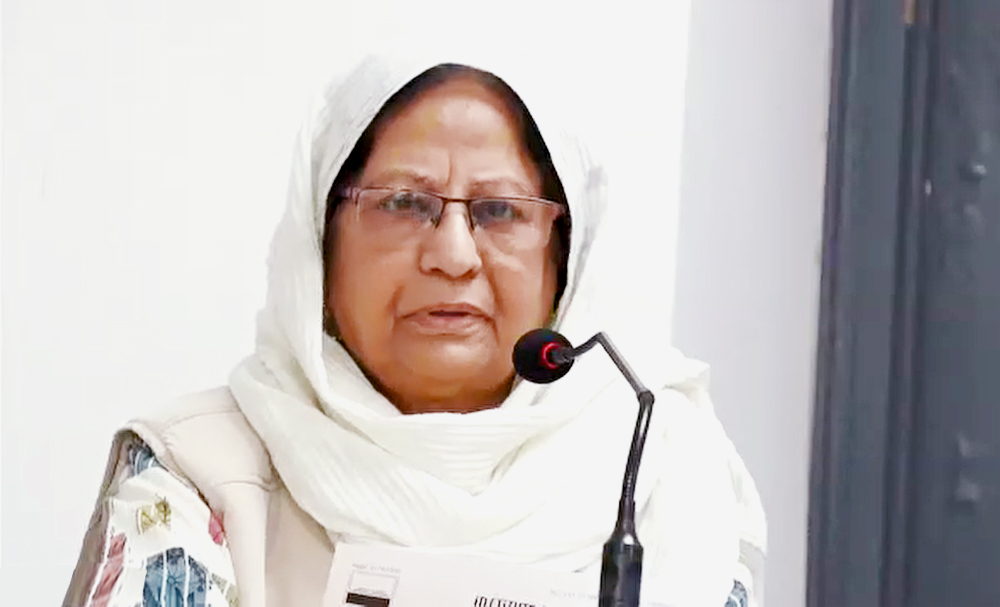
At the end of the meet, the vice-chairperson of the Institute, Prof. (Ms.) Haseena Hashia proposed a vote of thanks.
Go Back